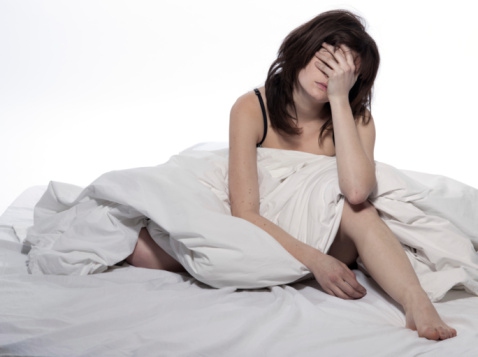Everyone in my family is sleep-deprived. My wife, who usually writes this column, is so overtaxed this month that she asked me to fill in for her. It’s tempting to blame our sleep deprivation on nightly interruptions by our nine-month-old or our toddler. But it’s my own fault, too: like 30 percent of my fellow Americans, my sleep habits are fairly wretched. Instead of treating my sleep as a valuable resource, I approach bedtime like folding the laundry: as a regular obligation that I’ll get to, eventually.
Decades ago this attitude might have been defensible, but nowadays scientists have linked sleep disruption to accelerated aging, increased risk of obesity, and immune system and cardiovascular dysfunction. The good news is that becoming a better sleeper may be simpler than it seems.

Part 1
Take bedtime lighting seriously (but not too seriously).
Recent studies have shown that reading on an electronic screen right before bed can inhibit the production of melatonin, a hormone that helps lull us to sleep. Although it’s true that these gadgets can mimic the effect of daylight on the eyes and influence the timing of the body’s internal clock, circadian neuroscientist Russell Foster of the University of Oxford says that in the end, quantity of light matters more than quality. “Bright light has a basic alerting effect on the brain, and the amount of light these portable electronic devices give off is pretty low,” Foster says. “Ironically, the last thing most of us do before getting in bed is to stand in a massively illuminated bathroom while brushing our teeth.” So instead of stressing out about whether you read in bed on a screen or on paper, put your bathroom light switch on a dimmer—or just brush your teeth earlier. However you do it, aim to minimize your exposure to light 30 to 60 minutes before bed.
Take a morning “photon shower.”
According to Foster, the same eye cells that rely on dim light to ease you into slumber also need a burst of brightness in the morning to resynchronize your circadian rhythm. “The human body clock is slightly longer than 24 hours, so without this stabilizing effect from morning light, the clock starts to drift,” Foster says. In other words, you’ll start going to bed later and later while waking up at the same time each morning, gradually building up a sleep deficit. The best medicine is, of course, natural morning light. But if your job, your geography or your kids force you to rise before dawn, grit your teeth and flip those ceiling lights on full blast until you can get some sun. Most indoor lighting has at least the same ambient brightness as a sky at sunrise—between 400 and 1,000 lux (the scientific unit for measuring illuminance). Foster recommends “showering” with 1,000 to 2,000 lux in the morning to ensure alertness and set your body clock up for a proper winding down later in the evening. If you really want to get scientific, you can download light-meter smartphone apps that will tell you exactly how bright any spot in your home is.
Hack your dreams.
The function of dreaming is still unknown, but a 2011 study done by Robert Stickgold, director of Harvard Medical School’s Center for Sleep and Cognition, showed that subjects who were told to solve a maze were able to do so more efficiently if they experienced dreams related to the task prior to doing it. And lucid dreaming—in which the dreamer becomes able to control his or her experience without waking up—may boost dreaming’s insight-producing and anxiety-reducing effects. “There are studies showing that people who have one lucid dream per month or more are more resilient in the face of stressful events,” says Tore Nielsen, a sleep researcher at the University of Montreal. You can prime yourself to experience spontaneous lucid dreaming, Nielsen explains, by making it a habit to ask yourself, “Am I dreaming?” throughout the day. Eventually you’ll probably ask the question during a dream, realize you’re dreaming and take control. “It’s been shown that you can fly, you can explore creative ideas, even treat nightmares” with lucid dreams, he says.
Just do it.
While researching this article, I encountered a seemingly bottomless supply of sleep-hacking tricks, from taking a midday “caffeine nap”—drink a cup of coffee, then sleep for 20 minutes—to keeping one foot outside the covers at night. But at the end of the day, Stickgold says, it’s pretty simple: you either choose to get the sleep you need, or you choose not to. “I tell people to do an experiment: go to bed one hour earlier than usual each night for a week,” Stickgold says. “And if you find at the end of the week that you’re really seven hours ‘behind’ on everything, then stop doing it! But if you suggest to me that you’re not more efficient with that extra seven hours of sleep, you’re totally delusional.” Challenge accepted, Dr. Stickgold. Just make sure my kids get the memo, too.

View All Comments /Add Comment